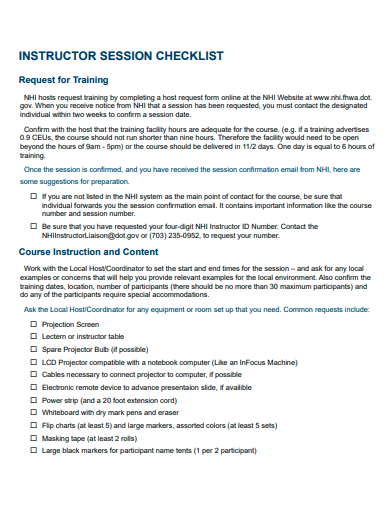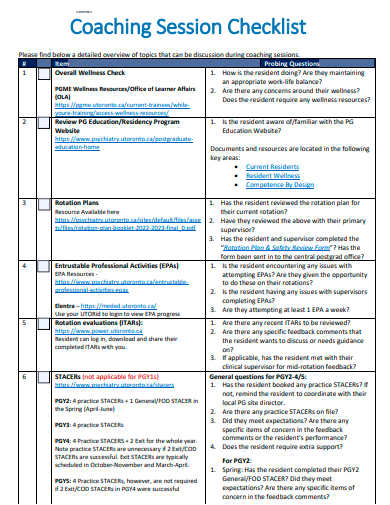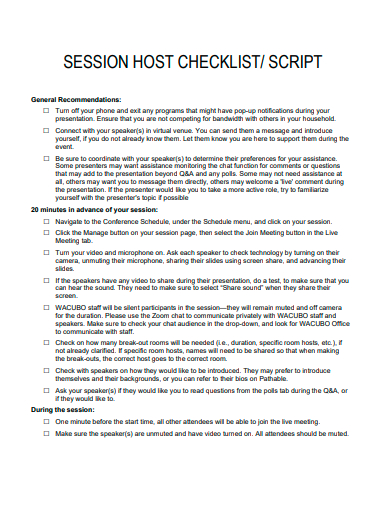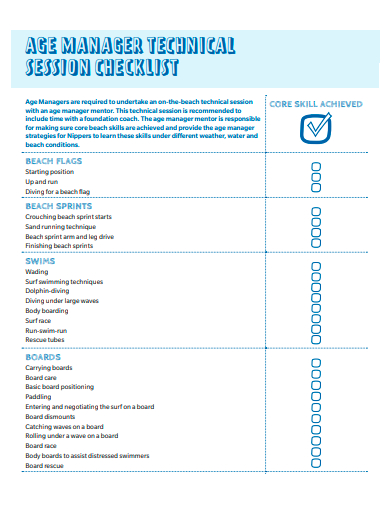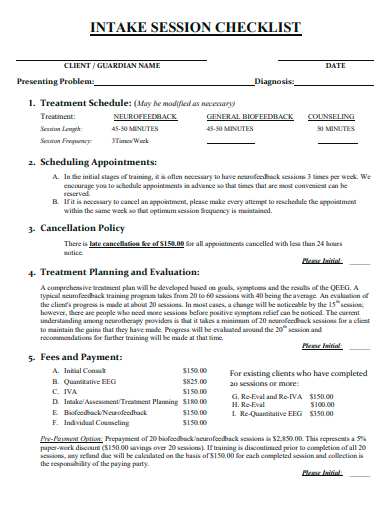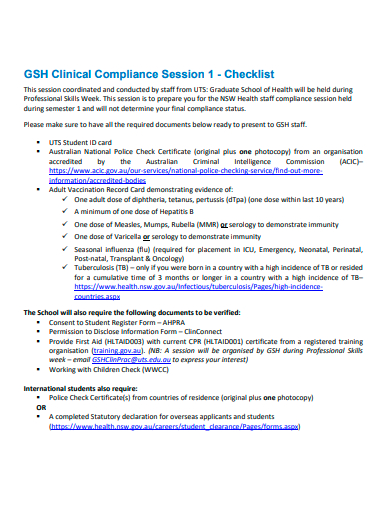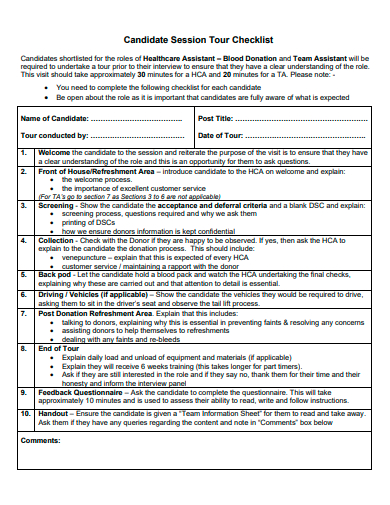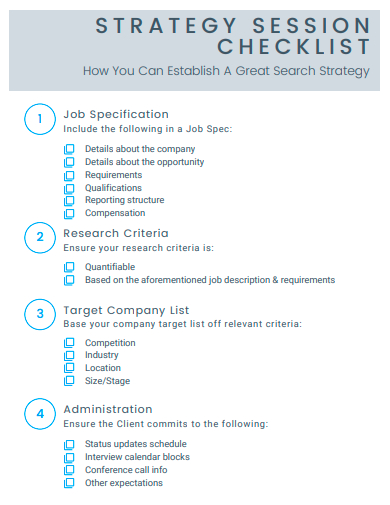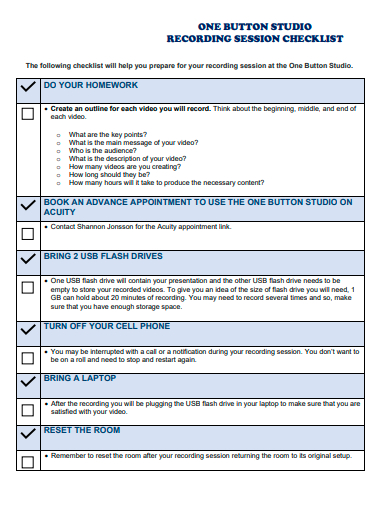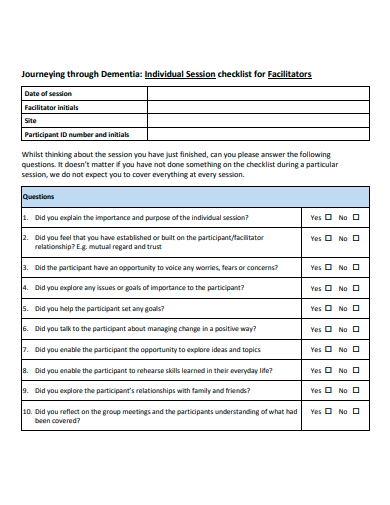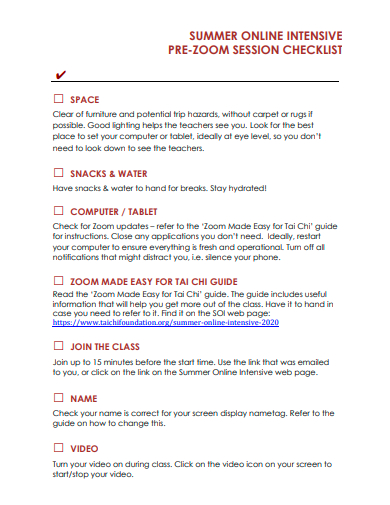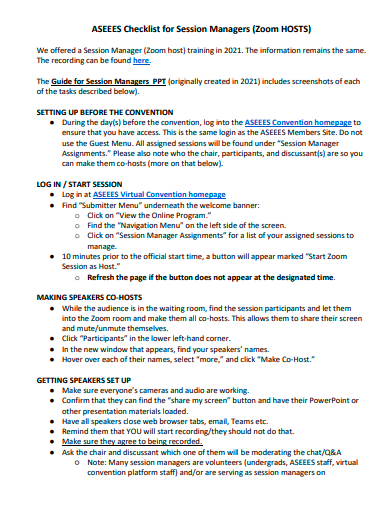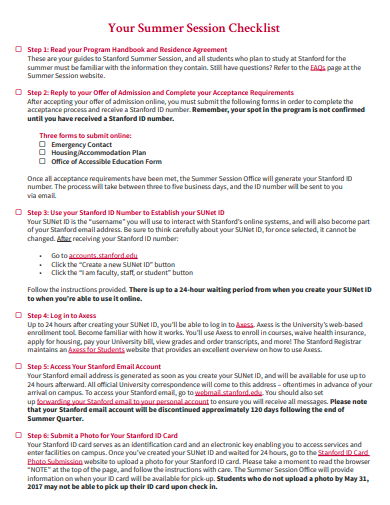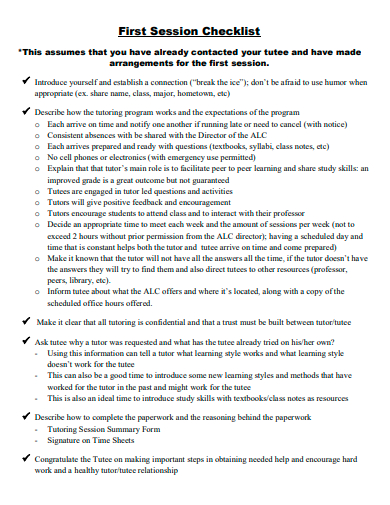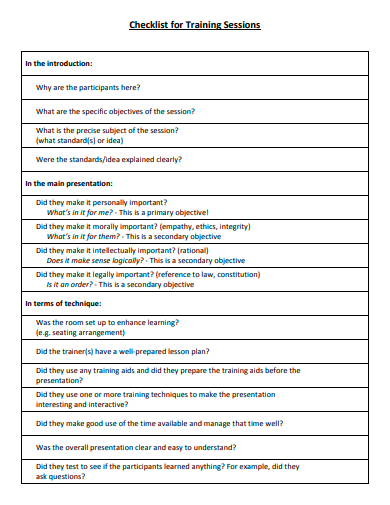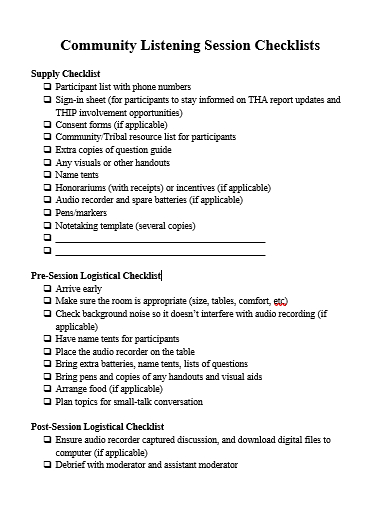Every productive meeting begins with a well-organized session checklist. Whether you’re planning a corporate conference or a casual brainstorming huddle, a checklist ensures that every topic is covered, participants are well-prepared, and objectives are met. Dive into our comprehensive guide to create an effective session checklist, tailored to meet your needs, ensuring that your gatherings are always effective, engaging, and result-driven. Be the master of your sessions!
20+ Session Checklist Samples
1. Virtual Training Session Checklist HR
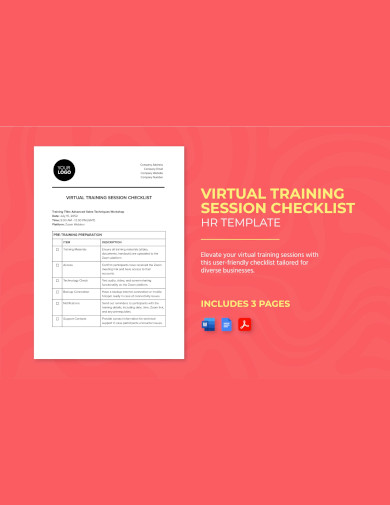
2. Peer Training Session Checklist HR
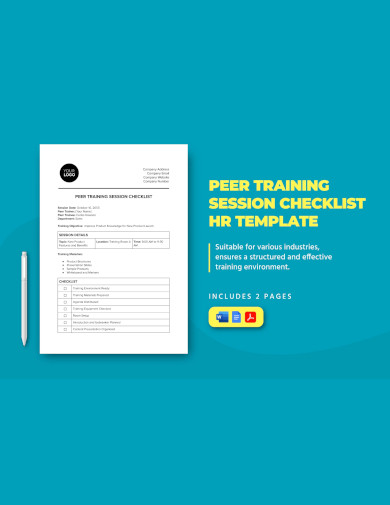
3. IT Employee Counseling Session Checklist
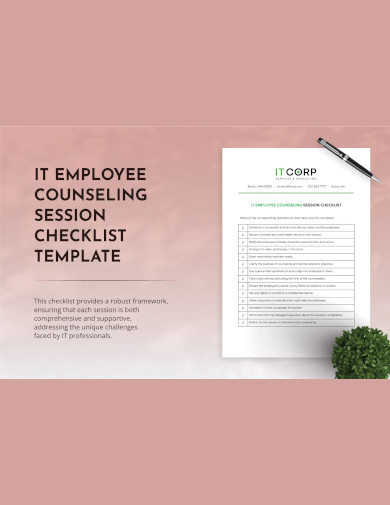
4. Formal Checklist Template
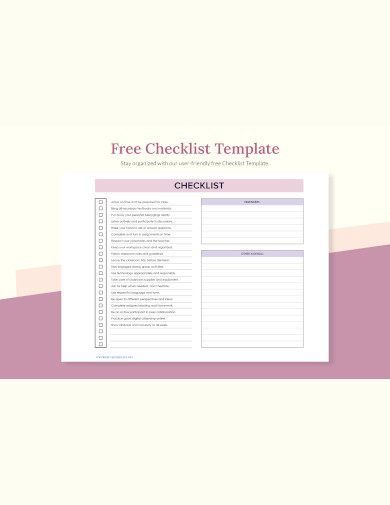
5. Printable Checklist Template
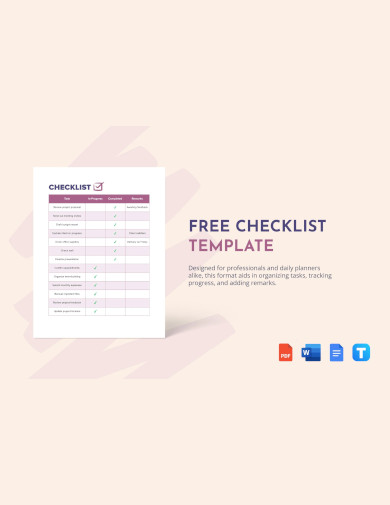
What is a Session Checklist?
A session checklist is a systematic and organized sample list of tasks, steps, or items that need to be addressed, completed, or verified during a specific session or sample event. The term “session” can refer to a variety of contexts, ranging from meetings and workshops to training modules and therapy sessions. The core purpose of a session checklist is to ensure that nothing important is overlooked and that the session progresses smoothly.
The Importance of a Session Checklist
In a world inundated with information and the demand for efficient and effective communication, a session checklist stands as an invaluable tool. It streamlines processes, ensures comprehensive coverage of topics, and elevates the overall quality of sessions, whether they are meetings, trainings, or seminars. Here’s a deeper dive into the significance of a session checklist:
1. Ensures Preparedness
A session checklist helps facilitators ensure that all necessary materials, tools, and equipment are in place before the session begins. This can range from technology setups, like projectors or video conferencing tools, to simple things like handouts or stationery. The advance preparation minimizes disruptions and technical glitches during the session.
2. Offers a Structured Flow
Rather than wandering off-topic or getting sidetracked, a session printable checklist provides a roadmap for the facilitator. This structure ensures that the meeting or training progresses logically, allowing attendees to follow along and grasp concepts more efficiently.
3. Enhances Time Management
Time is often of the essence in professional settings. A session checklist, with its segmented approach, can help in allocating appropriate durations to each topic. This ensures that every point receives its due attention and that the session remains within the designated timeframe.
4. Promotes Consistency
For sessions that are repeated across different groups or at different times, a session checklist ensures that all participants receive the same information and experience. It minimizes the chances of inadvertently omitting key points or topics.
5. Facilitates Participant Engagement
With a predetermined list of topics and activities, facilitators can better engage their audience. The checklist might include segments for discussions, breakout sessions, or interactive activities, ensuring participants remain active and involved throughout.
6. Allows for Accountability
A clear checklist makes it evident what topics or activities are to be covered. If something is missed or overlooked, it becomes immediately noticeable, promoting accountability among facilitators.
7. Provides Flexibility in Adaptation
While a session checklist offers a structured approach, it’s not rigid. If, during a session, a facilitator recognizes the need to delve deeper into a topic or skip over a point due to its irrelevance to the audience, they can do so, knowing they can return to the checklist to pick up where they left off.
8. Aids in Post-Session Reviews
After a session concludes, the checklist serves as a reference point for feedback and sample review. Facilitators can assess which areas went well and which might need adjustment in future sessions.
Components of a Session Checklist
- Pre-session Preparations: These include tasks like setting up the venue, ensuring necessary materials are on hand, testing technological tools, and confirming attendee availability.
- Agenda Points: Enumerating the primary discussion points or activities can help maintain the session’s focus and ensure all subjects are covered.
- Time Management: Allocations for each segment can help in preventing any one section from overshadowing others and ensure that the session starts and ends on time.
- Engagement Activities: In interactive sessions, this might include icebreakers, group activities, or Q&A segments to engage the participants.
- Feedback Collection: Having a set time or method for gathering feedback can help in refining future sessions.
- Closure Activities: This may include summarizing key takeaways, outlining next steps, or setting up a follow-up session.
Benefits of Using a Session Checklist
- Efficiency: By having a predetermined structure, the leader can confidently guide the session without worrying about missing crucial details.
- Consistency: Regularly held sessions, like training modules, can benefit from a standardized approach, ensuring every group gets a similar experience.
- Accountability: With a list to refer to, it’s clear what needs to be accomplished. This clarity can be beneficial for both the organizer and the attendees.
- Flexibility: While it provides a structure, a checklist also offers the flexibility to adjust based on real-time sample feedback or unforeseen circumstances, since the leader knows what’s left to cover.
6. Instructor Session Checklist Template
7. Coaching Session Checklist Template
8. Session Host Checklist Template
9. Age Manager Technical Session Checklist Template
10. Intake Session Checklist Template
11. Clinical Compliance Session Checklist Template
12. Sample Candidate Session Tour Checklist Template
13. Strategy Session Checklist Template
14. Recording Session Checklist Template
15. Individual Session Checklist Template
16. Pre-Zoom Session Checklist Template
17. Session Managers Checklist Template
18. Summer Session Checklist Template
19. First Session Checklist Template
20. Training Session Checklist Template
21. Community Listening Session Checklist Template
How do you Create a Session Checklist?
Planning a session, be it for training, a workshop, or an event, requires meticulous attention to detail to ensure its success. An effective session checklist serves as a sample roadmap, guiding the organizer through each phase of preparation, execution, and wrap-up. Here’s how to create an actionable session checklist in five clear steps:
Step 1: Define the Session’s Purpose and Goals
Begin by crystallizing the objectives of your session. Are you aiming to educate, brainstorm, solve a specific problem, or perhaps entertain? Clearly defining the session’s purpose provides direction for the subsequent steps. For instance, a training session’s goal might be to improve team communication, whereas a workshop could focus on mastering a specific skill.
Step 2: Detail Session Logistics
The backbone of any session lies in its logistical sample planning. Start by determining the following:
- Venue: Decide where the session will take place. If it’s a virtual session, choose a reliable platform. For physical sessions, ensure accessibility, comfort, and necessary amenities.
- Time and Duration: Choose a time slot that’s convenient for the majority of attendees. The duration should be long enough to cover the content without causing fatigue.
- Materials and Equipment: List down any presentation aids, handouts, technological tools, or special equipment you’ll need.
Step 3: Design Session Content
With logistics in place, focus on what you’ll be presenting or discussing during the session:
- Agenda: Outline the topics or activities, ensuring a logical flow. If it’s a training session, for example, start with foundational concepts and gradually move to advanced topics.
- Engagement Activities: Consider incorporating icebreakers, Q&A sessions, group discussions, or hands-on activities to keep participants engaged.
- Feedback Mechanism: Decide how you’ll gather feedback, be it through surveys, direct discussions, or digital tools.
Step 4: Assign Roles and Responsibilities
Distributing tasks ensures smooth operations:
- Facilitators or Speakers: Identify who will be leading the session. Ensure they are well-prepared and informed about the objectives.
- Support Staff: If it’s a large session, you might need personnel for registration, tech support, or managing breakout rooms in virtual settings.
- Timekeepers and Moderators: These roles help keep the session on track and manage participant interactions.
Step 5: Conduct a Pre-Session Review
Before the session:
- Dry Run: If possible, do a practice run. This is particularly vital for virtual sessions to troubleshoot any technical glitches.
- Checklist Review: Go through the checklist to ensure nothing is overlooked. Check equipment, confirm participant registrations, and ensure materials are ready and accessible.
In Conclusion, A well-structured session checklist is an indispensable tool for any organizer. It ensures that every aspect, from logistics to content and personnel, is planned and executed with precision. By defining clear goals, detailing logistics, designing engaging content, delegating responsibilities, and conducting thorough pre-session reviews, you’re setting the stage for a successful and impactful session. You can also see more sample templates on Coaching Session Checklists.
Related Posts
FREE 17+ Survey Checklist Samples in MS Word | Google Docs | PDF
FREE 18+ Internship Checklist Samples in MS Word | Google Docs | PDF
FREE 18+ Statement Checklist Samples in MS Word | Google Sheets | PDF
FREE 20+ Voluntary Checklist Samples in MS Word | Google Sheets | PDF
FREE 18+ Summary Checklist Samples in MS Word | Google Sheets | PDF
FREE 14+ Sponsorship Checklist Samples in MS Word | MS Excel | PDF
FREE 18+ Conference Checklist Samples in MS Word | Google Sheets | PDF
FREE 17+ Lesson Checklist Samples in MS Word | Google Sheets | PDF
FREE 18+ Progress Checklist Samples in MS Word | Google Docs | PDF
FREE 18+ Enrollment Checklist Samples in MS Word | Google Docs | PDF
FREE 18+ Graduation Checklist Samples in MS Word | Google Sheets | PDF
FREE 15+ Consent Checklist Samples in MS Word | Google Sheets | PDF
FREE 18+ Review Checklist Samples in MS Word | Apple Pages | PDF
FREE 18+ Submission Checklist Samples in MS Word | Google Docs | PDF
FREE 18+ Request Checklist Samples in MS Word | MS Excel | PDF

